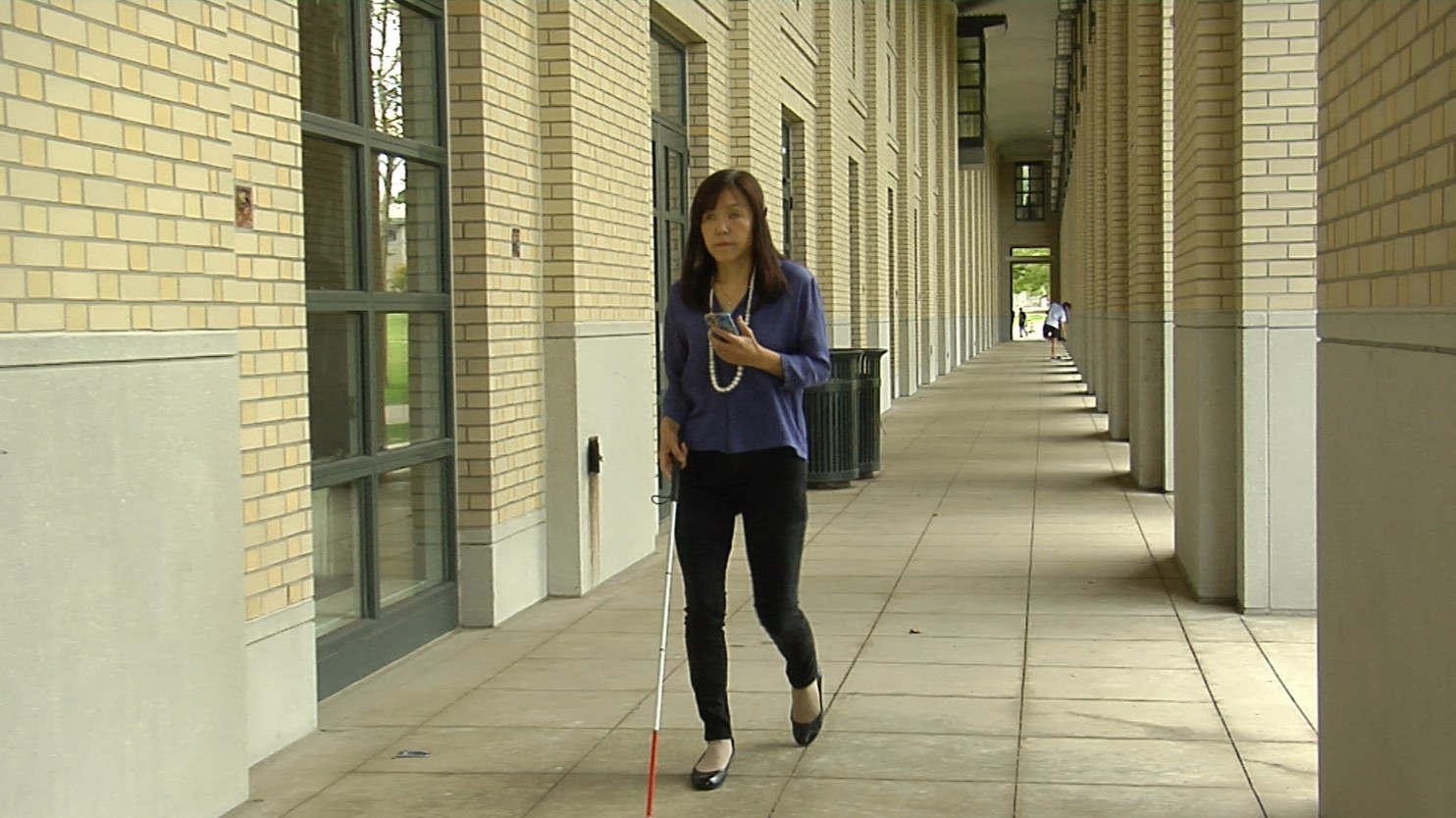Advances in AI and robotics have helped scientists from IBM Research and Carnegie Mellon University develop an app that functions as eyes for the blind. Their goal was to create a technological platform to aid the visually impaired in navigating around the world.

Navcog, the pilot app for Android and iOS, uses existing sensors to help blind people navigate their surroundings by whispering into their ears through headphones or by creating vibrations on their smartphones. Users have the option to set the app to either voice mode or vibration mode.
Just as turn-by-turn GPS devices work, the app offers its own directions for the visually impaired. By analyzing Bluetooth signals from beacons located along walkways, Navcog uses smartphone sensors to help users walk without assistance, whether it be indoors or outdoors.
Algorithms aid the blind in identifying in near real-time where they are, which direction they are facing, and any additional environmental information. A computer vision navigation application tool turns smartphone images of the surrounding environment into a 3D space model that can be used to issue turn-by-turn navigation.
Currently, coverage is only retrofitted on the buildings at the Carnegie Melon campus beacons. A major goal is to extend this, and scientists have already made the entire NavCog platform open source so it is available to developers via the IBM BlueMix cloud, making it possible for other developers to create enhancements for the system and speed up the rollout.
Another goal is to make the system feasible in any environment, especially if Bluetooth beacons are not present. The university plans to make advances in computer vision, as well as discover new information in the field of cognitive assistance, a research field dedicated to helping the blind. Using cameras for computer-aided vision may make it possible to develop a system that does not require Bluetooth beacons.
“From localization information to understanding of objects, we have been creating technologies to make the real-world environment more accessible for everyone,” said Martial Hebert, director of the Robotics Institute at Carnegie Mellon.
IBM will release the app to the App Store free of charge for consumers to download once improvements have been made.
Source: Washington Post
Advertisement
Learn more about Electronic Products Magazine





